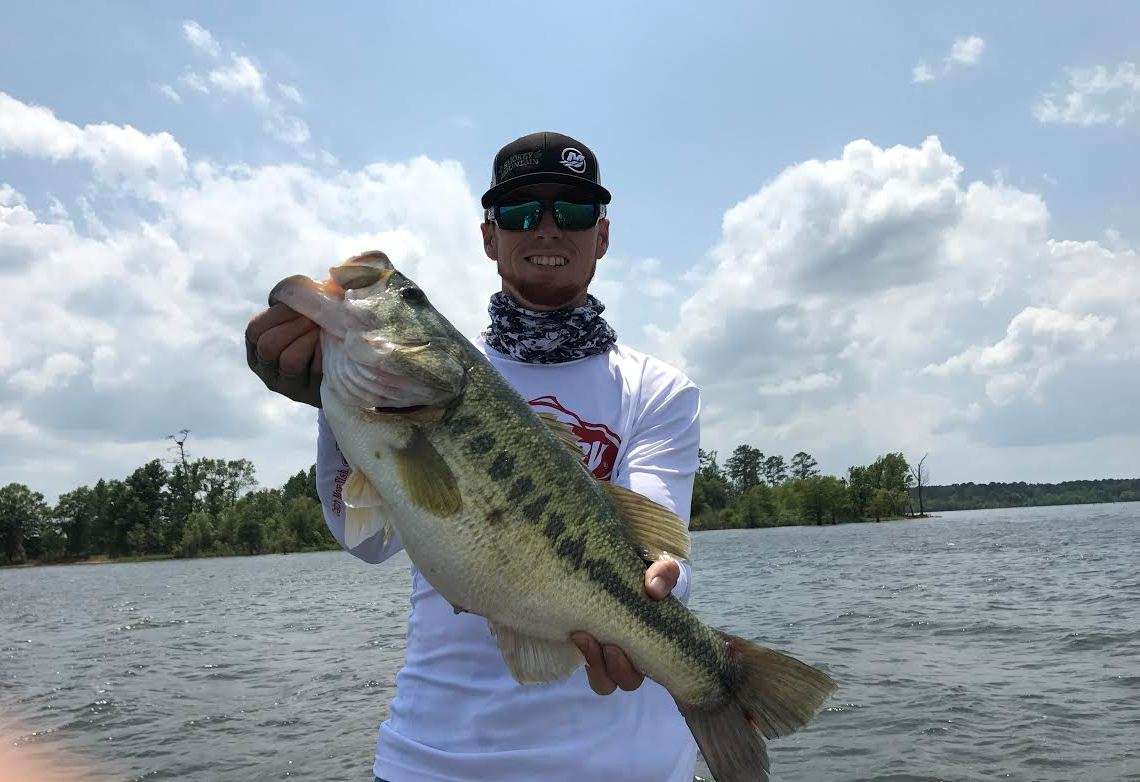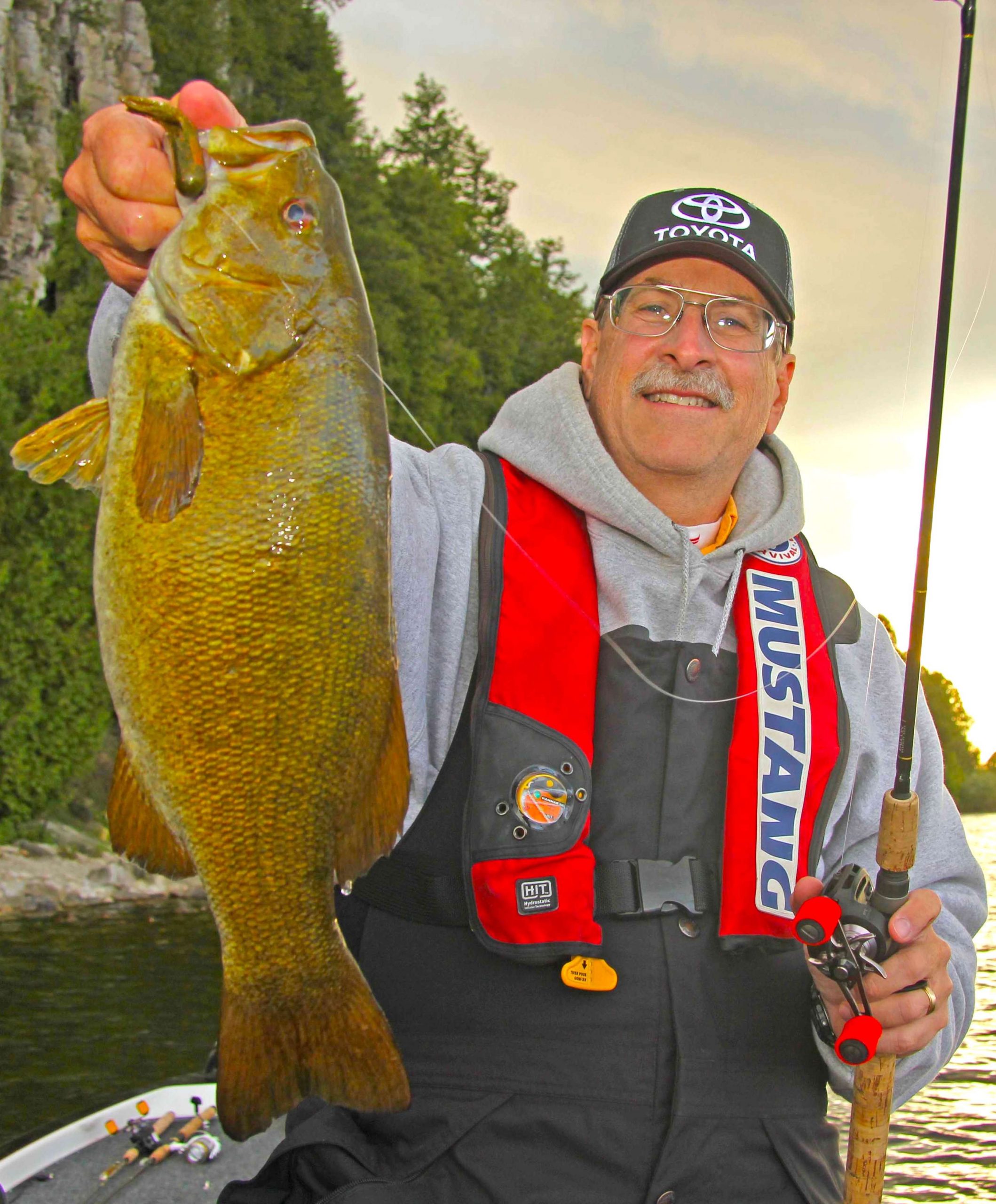
The future of bass tournaments is being debated on websites, in social media and at your local tackle shop.
Fueling the discussion is the spotlight put on the catch-weigh-release (CWR) format at the Toyota Bassmaster Texas Fest benefiting Texas Parks and Wildlife held on Sam Rayburn Reservoir in May.
This format, where fish are caught, measured or weighed in the boat and released immediately has never really caught on among tournament organizations. But that may be changing because of increased exposure in professional contests.
The Toyota Texas Bass Classic was an early adopter of CWR for a professional tournament. It was later modified for television by Major League Fishing. B.A.S.S. used it for the live-streamed Classic Bracket tournament on the Niagara River last fall and again this year at Texas Fest.
So is CWR the future of bass tournaments? Are traditional live-fish weigh-ins going the way of the dinosaur?
I think not, and here’s why:
Outside the made-for-TV or Internet events — which have small field sizes and lower purses — and other professional events held under this format that did not have concerts or festivals drew poor crowds. That equates to reduced exposure for sponsors (who by the way, pay most of the bills).
Also, fans still want to see their heroes cross the stage and show off their catch if they have a bag of trophy-sized bass (think Dean Rojas’ 45-2 record limit from Toho in 2001). The excitement and suspense of the final weigh-in is what makes a big-league bass tournament special. Package and market them right, and they draw the crowds that host communities and sponsors want to see.
What about draw-for-partner tournaments, Junior Bassmaster and high school events with boat captains? CWR can work, but they will require significant investments to recruit and train impartial judges and purchase identical scales that the anglers trust.
I see B.A.S.S. using a CWR format occasionally in special events like the Classic Bracket and Texas Fest, streamed live on Bassmaster.com. A hybrid event with some CWR days followed by days of traditional live-fish weigh-ins for the fan appeal and sponsor exposure might work too.
This could provide options on waters with restrictive length limits or catch-and-release rules where retention in livewells is prohibited. But the logistics, financial and competitive considerations of converting every Bassmaster Elite Series event, every B.A.S.S. Open or B.A.S.S. Nation event are just too big a hill to climb.
But stick with me because this is where this discussion takes a big turn.
Beyond the logistical issues of CWR, this discussion brings up a much bigger question — one that could impact the future of the entire sport of bass fishing.
Does this discussion of CWR signal the beginning of a shift in our (and the public’s) perception of how fish should be treated by anglers?
The recent promotion of CWR has some people thinking that state agencies should require CWR for all fishing contests. Should we do away with traditional weigh-ins because they are “bad for the fish?” In doing so, are we heading down a slippery “fish welfare” slope?
Other recent discussions on the Internet tie right in to the animal welfare agenda. Photos of fish damaged from the use of piercing culling clips blew up on social media, and some states and tournament organizations now require non-penetrating clips. I’ve seen no research showing culling clips contribute to increased mortality, but those on-line images of fish with holes and gashes remain, stirring controversy.
And how do you hold a bass? One hand? Two hands? Even something as simple as this is being argued. Anglers posting photos on social media are criticized, even ridiculed, if they don’t “do it right” according to their critics. A study in Florida found no lethal injuries from a traditional lip grip (although the authors did recommend using two hands for larger fish because the fish recovered and resumed normal activities faster). Who is right?
We have chastised anglers for many years about flipping bass onto the boat carpet because it could rub off the fish’s protective slime coat. Again, there is no specific science to show that boat-flipped bass have a different survival rate than those landed in a net or by hand.
Common sense says that a soft net or wet hands must be better than hot carpet, but with 40-plus years of tournaments behind us, and perhaps millions of boat-flipped bass later, bass populations are still strong despite these “bad” behaviors. And, maybe no one has a more vested interest in keeping bass alive than the tournament angler — especially the Elite anglers who depend on the resource for their livelihood.
What I’m sensing is a growing attitude among the public, fueled by the instant access to information (and misinformation) on the Internet, that fish are being “abused” in bass tournaments. If they are flipped, clipped and weighed on a scale and then shown to the crowd with one hand, the perception is that those fish are being mistreated and are likely to die as a result.
In continually stressing fish-care procedures to the nth-degree, are we playing into the hands of the animal welfare folks, the “fish-have-feelings-too” folks, the “maybe-if-those-fish-are-so-valuable-you-shouldn’t-be-fishing-for-them-at-all” folks? Are we giving animal welfare advocates ammunition that could eventually lead to limitations on the sport of fishing?
Don’t think it can happen? Ask our friends in Germany.
B.A.S.S. introduced the catch-and-release concept to bass tournament fishing 45 years ago, and it has become a universal ethic among bass anglers. Along the way, we developed tournament fish-care protocols outlined in Keeping Bass Alive that help anglers and tournament directors do the best job of keeping fish healthy for release.
I’ve been an outspoken advocate of fish-friendly weigh-ins to maximize survival of released fish for many years, but I know that fish mortality is not so much a bass-population problem as it is a social issue.
Dead bass on the shore after a weigh-in are not good for the resource or for tournaments. If more tournament anglers and organizations followed the recommended procedures, the benefits to our fisheries would be even greater.
More importantly, critics would have less to talk about.
A Greek philosopher said, “Moderation in all things.” I believe we need to think that way about the utility of CWR and other recommended fish-care protocols.
We’ve come a long way in tournaments since the days of keeping bass on stringers and having fish fries after the weigh-in and our bass populations are better for it. But the state of the sport as we know it, from all available scientific evidence, tells us that tournaments are generally not harming bass populations.
Let’s use common sense and continue to follow best practices, realize that alternative methods such as CWR are available, strike a balance and be selective where we apply those new ideas. But let’s not go overboard on pushing for extremes, lest those extremes come back to bite us.

